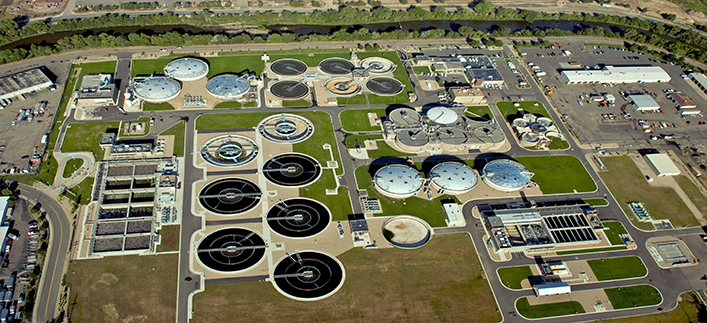When building a township or even a small community building project, one of the most important infrastructure support is a wastewater treatment plant. Without a properly planned plant, a proper installation will be impossible.There are some important factors to be considered when selecting a location and design for the STP. These factors also apply if you are planning an extension. You can contact an expert in wastewater treatments India. Here are some of the important factors:
Location
The location of the plant is a critical factor. An STP for a community has to be built on a large scale. This means a fairly large area has to be devoted to the plant. hence, it is best to scope out the location in the initial blueprints. Many STPs emit noxious gases that can be unpleasant.
So, the location also has to be at a distance from residential sites. We also have to take into account wind conditions in the area to minimise the effect of the fumes. The plant should be at a sufficient distance from drinking water sources or pipes to prevent any possibility of cross-contamination.
The other two main factors to be considered here are soil conditions and flood protection. An STP should ideally not be built on any land that is susceptible to flooding. Sufficient safeguards need to be in place to ensure that electronic, mechanical and physical components of the plant are protected from any drainage in case of a flood.
Selecting a technology
There are a number of technologies used in wastewater treatments India. Broadly speaking there are three main types of wastewater treatment processes — chemical, biological and mechanical. Each process has its advantages, disadvantages and limitations.
For instance, some processes are better suited to smaller volumes, while some work best with big volumes. A selection much be made after a careful evaluation of each parameter. Other factors that have to be considered include nature of influent,
influent flows, type of effluent, local conditions, resources, byproducts and cost of operation.
Determine the capacity
For an STP to work at its optimum capacity, it must have effluent within a certain range. If its running on volumes that are two lower than its capacity, it will not work properly. Similarly, an overloaded STP will be just as ineffective.
To evaluate the capacity, a survey has to be made of the number of households. This gives an idea of the wastewater that will be generated in a day. This includes an evaluation of average daily flow, peak hour flow and minimal daily flow.
While determining the capacity we also have to consider future expansion. The number of households can increase and the STP design must have provision for the expansion.
Ensuring supporting infrastructure
Any plants for wastewater treatments India needs comprehensive supporting infrastructure. This includes power supply and sewage pipes that bring in effluent and carry out the discharge. Without this crucial support an STP cannot function. Frequent electrical breakdowns will hamper its functioning and frequent breakdown will eventually result in its loss of effectiveness.
To safeguard against this, we have to ensure that there are alternatives, especially for power supply. There should be a capable generator on premises that can be used whenever there is a power shut-down.
Work out revenues
Running an STP is an expensive business. Apart from the building costs, there are also regular running costs. You need sufficient funds for labour, electricity and other operating costs. STPs also need regular upkeep and maintenance. For instance, the screens must be replaced at regular intervals.
All these factors must be evaluated beforehand. Many community STPs fail because of lack of planning in revenues. For a sustainable installation there has to be a revenue source. This must be planned carefully. How you can plan the revenue structure, how it can be maintained and boosted.
Discharge management
The discharge from an STP is the leftover after the wastewater has been treated. This is quite a toxic mix and it must be disposed off in a responsible manner. Find out if there are any rules regarding the disposal and if you have access to technology to process the discharge.
Manpower training
When hiring a manufacturer for wastewater treatments India, find out about their training and maintenance programs. You will need trained personnel on site and regular maintenance. Look for a manufacturer who can provide both.




















